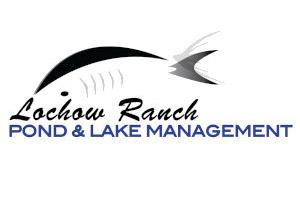Postdoctoral Research Scholar - AI tools for camera trap data
NCSU (State)
Details
Application Deadline:
10/30/2025
Published:
09/19/2025
Starting Date:
between 11/1/2025 and 1/30/2026
Ending Date:
between 11/11/2028 and 1/30/2029
Hours per Week:
40
Salary:
$64,000 to $66,950 per year
Education Required:
Doctorate
Experience Required:
none
Tags:
Faculty / Post-Doc Appointments
Description
This position will work with biologists to build AI models to analyze camera trap data. The specific focus will be to study animal coloration and camouflage, but there will be opportunities to work on other related projects. The position will be based out of the Biodiversity Lab in the North Carolina Museum of Natural Sciences, and also have access to resources and work with students from North Carolina State University. There will be opportunities to collaborate broadly with the growing Snapshot Global community of camera trappers and the Wildlife Insights team. The position is for three years and is funded by the National Science Foundation.
Department Required Skills | Expertise in developing, implementing, and optimizing advanced artificial intelligence (AI) models and algorithms for data analysis and extraction. This includes strong proficiency in programming languages such as Python and R to create and manage data workflows and conduct statistical analyses.Experience with machine learning frameworks and techniques pertinent to image processing and data integration is essential. A key responsibility will be the ability to manage, collate, and integrate large datasets from various sources, including environmental and sensor data. Commitment to ensuring the public accessibility of developed AI workflows and software, through code repositories and user-friendly platforms, is required. Excellent communication and presentation skills for scientific dissemination and public engagement.
Preferred Years Experience, Skills, Training, Education |
Candidates should preferably:Hold a Ph.D. in Computer Science, Quantitative Ecology, or a closely related field with a strong emphasis on AI and data science. Demonstrated experience in developing and applying computational tools to large-scale scientific problems is highly valued. Familiarity with interdisciplinary research approaches, particularly at the nexus of computer science and environmental or biological sciences, is desirable. An interest in contributing to educational and outreach initiatives and mentoring junior researchers, such as undergraduate students, is also preferred. Prior experience in preparing and contributing to scientific publications and grant applications would be beneficial.
Department Required Skills | Expertise in developing, implementing, and optimizing advanced artificial intelligence (AI) models and algorithms for data analysis and extraction. This includes strong proficiency in programming languages such as Python and R to create and manage data workflows and conduct statistical analyses.Experience with machine learning frameworks and techniques pertinent to image processing and data integration is essential. A key responsibility will be the ability to manage, collate, and integrate large datasets from various sources, including environmental and sensor data. Commitment to ensuring the public accessibility of developed AI workflows and software, through code repositories and user-friendly platforms, is required. Excellent communication and presentation skills for scientific dissemination and public engagement.
Preferred Years Experience, Skills, Training, Education |
Candidates should preferably:Hold a Ph.D. in Computer Science, Quantitative Ecology, or a closely related field with a strong emphasis on AI and data science. Demonstrated experience in developing and applying computational tools to large-scale scientific problems is highly valued. Familiarity with interdisciplinary research approaches, particularly at the nexus of computer science and environmental or biological sciences, is desirable. An interest in contributing to educational and outreach initiatives and mentoring junior researchers, such as undergraduate students, is also preferred. Prior experience in preparing and contributing to scientific publications and grant applications would be beneficial.
Contact
Roland Kays
rwkays@ncsu.edu (preferred contact method)






